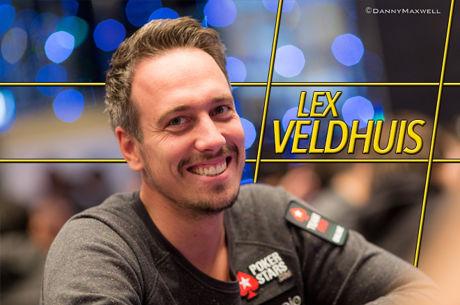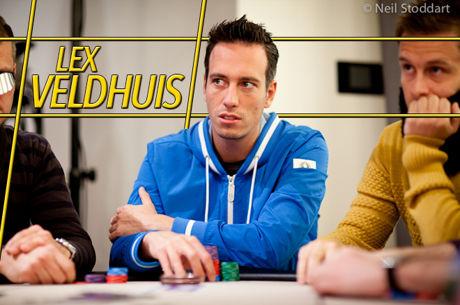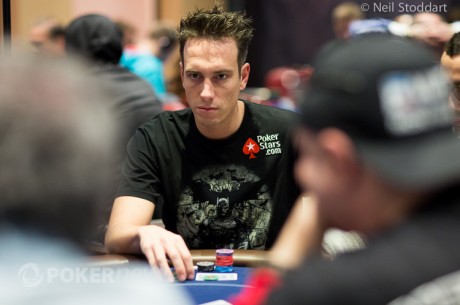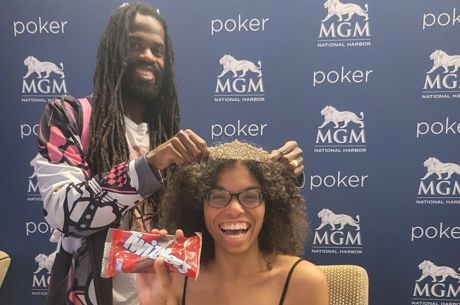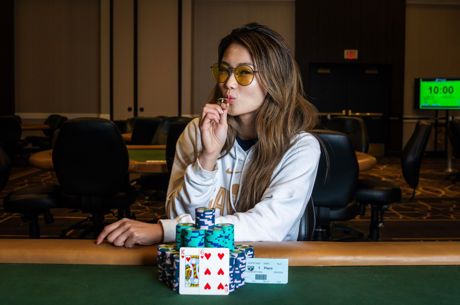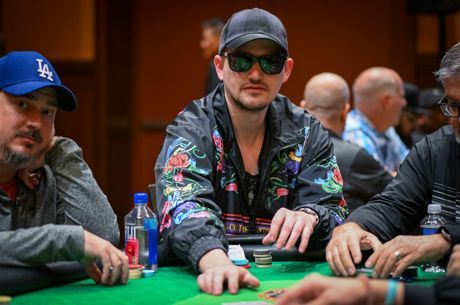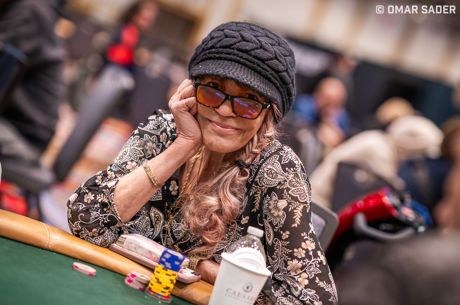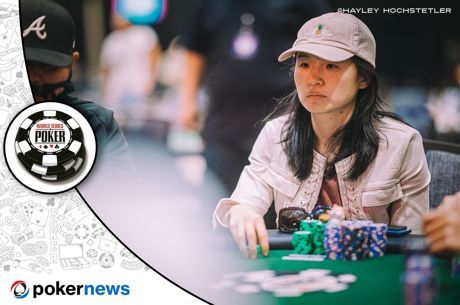Lex Veldhuis Keeps Reinventing Himself, Conquers Twitch (Part 2/3)
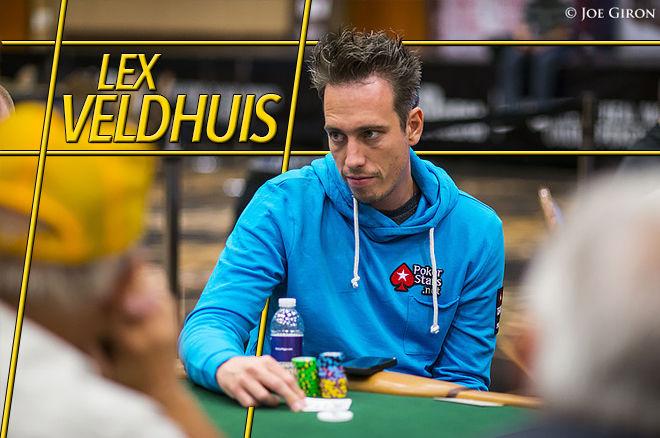
Yesterday, we kicked off this 3-part interview series with PokerStars Team Online pro Lex Veldhuis. In Part 1, we talked about his time at the PokerStars Caribbean Adventure where he didn't play, but was part of the commentary team.
When you stream your own game, you can be vulgar sometimes. On the PCA live stream, I imagine that wouldn't be appreciated. Did they put a gag order on you?
Nah. Of course, in the old EPT Live webcasts I wasn't swearing constantly either, they know I wouldn't do that.
I do swear a lot at home on my Twitch stream, but during an official live stream, I think one should be a little more professional, especially if it's the sponsor's program you're commentating on. It's an official broadcast, so people should be able to tune in without getting profane words shouted through their living room. So yeah, it's a little bit more of a serious role for me.
"As long as I don't drop an f-bomb every five minutes, I think I'm fine."
I did say, 'I see you fucking look at me' to Richard once and got a red card for that from the production crew, haha. But as long as I don't drop an f-bomb every five minutes, I think I'm fine.
There were two different roles for you at the PCA: the one of expert commentator, and the one where you were sitting in the "studio," with a nice jacket on and all. How was it to be in that role?
I feel very at home as a commentator, as I feel it's similar to streaming. My English has improved a lot, after streaming for so many days and hours, I feel I'm quite fluent.
But when I'm doing the table talk segments, it's a different ball game. I'm behind the desk with someone in my ear telling me I got 20 seconds for my analysis of the hand. And the countdown will start from 10. That takes some getting used to, formulating my thoughts while also paying attention to the producers. But I feel it went fine.
Are you still a poker player, who happens to stream? Or are you a streamer who chooses poker as his game?
That's a good question actually. I'm a poker player who streams, but streaming is really important to me. Right now, I'm really still improving my game. And because 2017 has gone so well, I'm climbing the stakes again. I'm regging $1K tournaments, something I wouldn't have done a year and a half ago. So in that aspect, I'm progressing and my viewers come along.
"I'm truly a poker player, I've always been a poker player."
But, I must say, if it were better for my stream to simply play two tables with $50 tournaments and talk to the camera, I would do just that. But, I'm truly a poker player, I've always been a poker player. I'm spreading my attention between the two.
I've always been an emotional player, and that's integral to streaming as well. For me, it's the perfect combination: playing poker and streaming.
I used to play Omaha and watch a ton of Twitch. All of the sudden, poker on Twitch became popular. And, of course, PokerStars was interested in that combination: poker streaming on Twitch. For me, it was the perfect fit really. It allowed me to do what I like, and be of value to my sponsor. Everything has come together and I'm in pretty much the perfect situation, especially if you compare it to a little while ago.
I loved to play online and loved live cashgames, but I've never felt so right at place as I feel now.
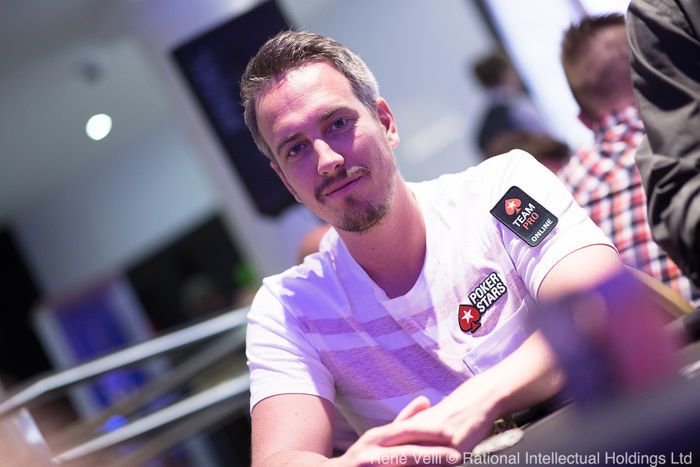
We go back some time, so I know firsthand you've been "searching" a bit. You've gone from online cash games to tournaments, to live cash games, to trying to specialize in mixed games, and on to Omaha cash games full time. Now it's online no-limit Hold'em tournaments mostly.
Yeah, I'll tell you a bit how that happened. From playing online cash games mostly, I transitioned a bit to live tournaments as I got my sponsor deal with PokerStars. When I quit playing live so much, I soon found out online cash games weren't what they used to be; players had progressed while I had been standing still. I needed to put in a lot of time and effort to get back to the level I was at before. Otherwise I would've simply gotten destroyed.
I figured, if I need to put a lot of time and effort, I might as well put that into learning something new. I started out with mixed games, and eventually found pot-limit Omaha to best suit me.
I focused on getting Supernova Elite again, which had a disastrous result on my pot-limit Omaha game. I was grinding just to make the hours, as I could earn a lot with getting SNE, but lost track of the overall goal of getting good at poker.
When PokerStars did away with Supernova Elite, I was back to where I had started. I really needed to decide what I wanted. I could've gone full beast mode on getting back to being able to beat PLO again, but PokerStars motivated me to give Twitch a try.
As you were, once again, on a crossroad in your poker career, did you contemplate to just quit? To just go do something else?
Yes, of course. Look, a lot changed when rakeback and SNE was eliminated. It had a huge impact on everyone playing. At times like that, you have to ask yourself what you want to do, and how you can use your skills best.
"Playing $10/$20 and $25/$50 heads-up with huge swings, those were really the days."
I asked myself what I wanted to do. I was 31 at the time. Was I really going down that route again of pushing myself to get back to being profitable playing poker? That would mean I had to go back a couple of levels and really fix my leaks.
With streaming on Twitch, I really found an out. I was, again, trying something completely new. And I figured poker wasn't essential to streaming either. I could just stream something else. So in combining the two and building experience with streaming, I had the best of both worlds. Even if poker wouldn't have worked, at least I had another skill. It broadened my horizon for sure.
If you asked me to put together a Top 3 of moments in poker for me, being the streamer that I am today would definitely make the Top 3.
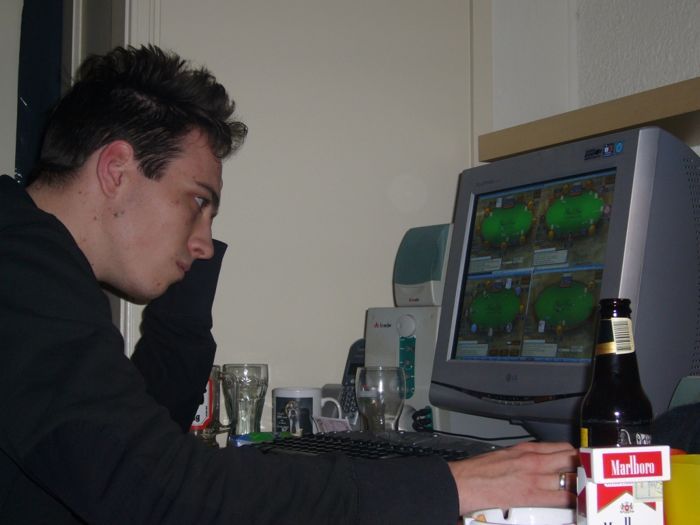
What else makes the Top 3?
Living in Rotterdam, playing $10/$20 and $25/$50 heads-up with huge swings, those were really the days. I remember it fondly. I think I have such warm feelings for that period because it makes me remember the freedom: not having any responsibilities. I just really loved that.
And the underground live cash games I played, that really made for some insane adrenaline rushes. I absolutely loved it.
I thought I had the same when I was playing PLO, but I don't think I really reached my full potential there. Getting to Elite was a misstep for me I feel.
And now we're here: playing online tournaments, hundreds of people watching, an awesome community built around it.
"You can't go full throttle for your entire life."
The other two moments are quite the opposite of what you're doing now. It's the degen days you describe, where you'd play hours at a time. You still have freedom now, but you are expected to stream regularly or your community might lose interest. You're here at the PCA, but you're sitting behind a desk in a suit. It's more of a regular job now than what you did back in the day. Do you miss those days?
Yes, but everything changes, I've changed as well. You can't go full throttle for your entire life. I guess a lot of people remember their time in high school in a similar manner.
While it was a lot of fun at the time, there comes a time where you got to say goodbye to those days. Now it's time to build a future, now I'm doing things I will still benefit from 30 years from now. Of course, playing $200/$400 and buying into crazy expensive tournaments was fun, but those days are gone. I'm doing stuff now that really makes me happy and I'll benefit from for a long time.
Check back tomorrow for the final part of this 3-part interview. We talk about tilting on stream, the negatives of broadcasting his game full time, and making money from Twitch.
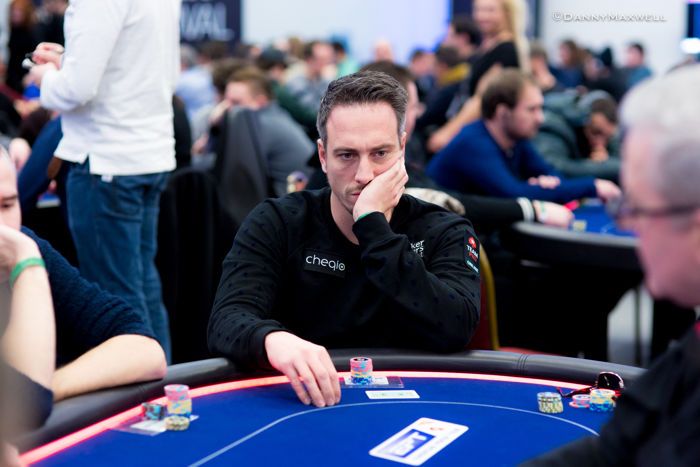
Photos courtesy of Joe Giron, Rene Velli, and Danny Maxwell.
This interview was originally conducted in Dutch for PokerNews.nl. This article is a translation from that SoundBite on PokerNews.nl.
The Stars Group owns a majority share in iBus Media.

